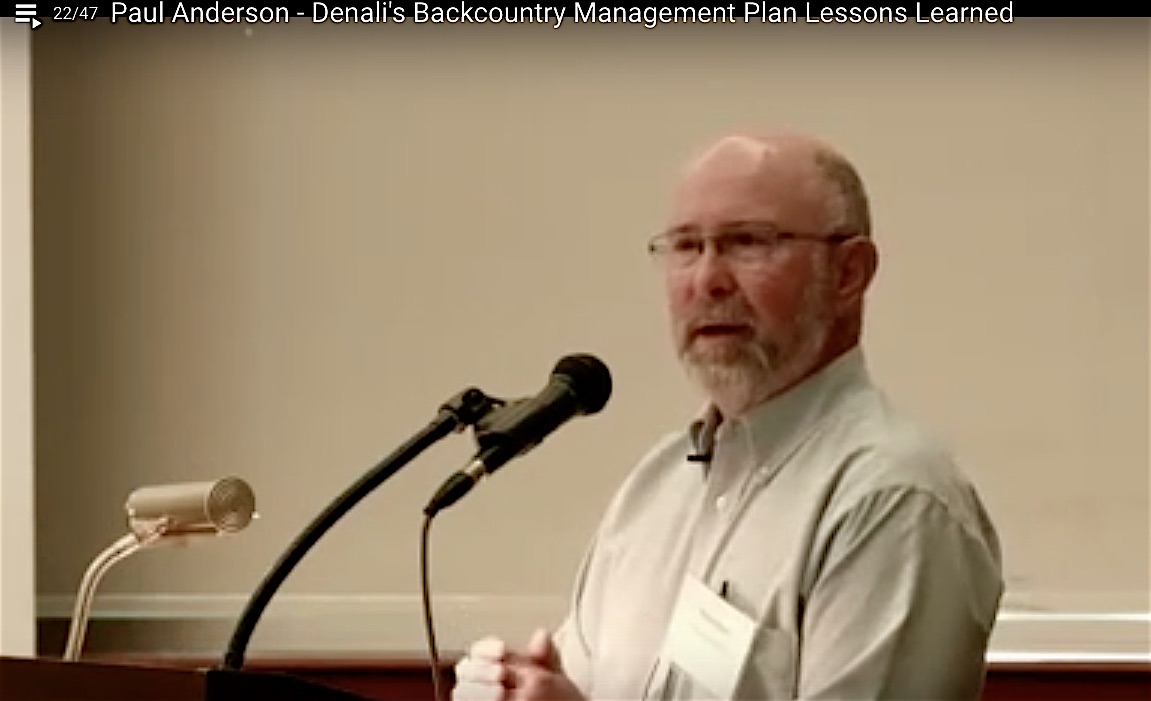Watch Paul Anderson’s presentation below:
Paul Anderson
Denali’s Backcountry Management Plan: Lessons Learned From The Challenges, Successes And Failures In Developing And Implementing A Comprehensive Management Plan.
Denali National Park and Preserve has extremes: almost 6 million acres of wilderness (2 million acres of designated Wilderness); varied ecosystems with elevations ranging from about 1,000 feet on the Yentna River to North America’s highest peak, at 20,320 feet. Developing and implementing a pioneering backcountry, climbing, and wilderness management plan was a complex task. To be successful, managers had to evaluate a diverse set of public values, often balancing tradeoffs among multiple and often competing values. The plan process developed a decision-making model that integrated social, resource, and managerial values associated with the Denali wilderness experience. This plan has been the foundation for the ongoing efforts to preserve Denali’s wilderness resources and values.
Paul Anderson was Superintendent of Denali National Park and Preserve for 11 years, responsible for all park operations, including the Mountaineering Program on Mt. McKinley. Retired today, he began his 42-year career as a climbing ranger and ski patroller in Rocky Mountain National Park, and served as a backcountry ranger and search and rescue specialist in numerous parks. Paul initiated and led the multi-year effort to complete the Denali Backcountry Management Plan. The plan, which set specific objectives, standards, and indicators for backcountry and Wilderness resource conditions and visitor experience, was one of the first Backcountry Management Plans in the U.S. to use this approach.
View Paul’s slides below:
